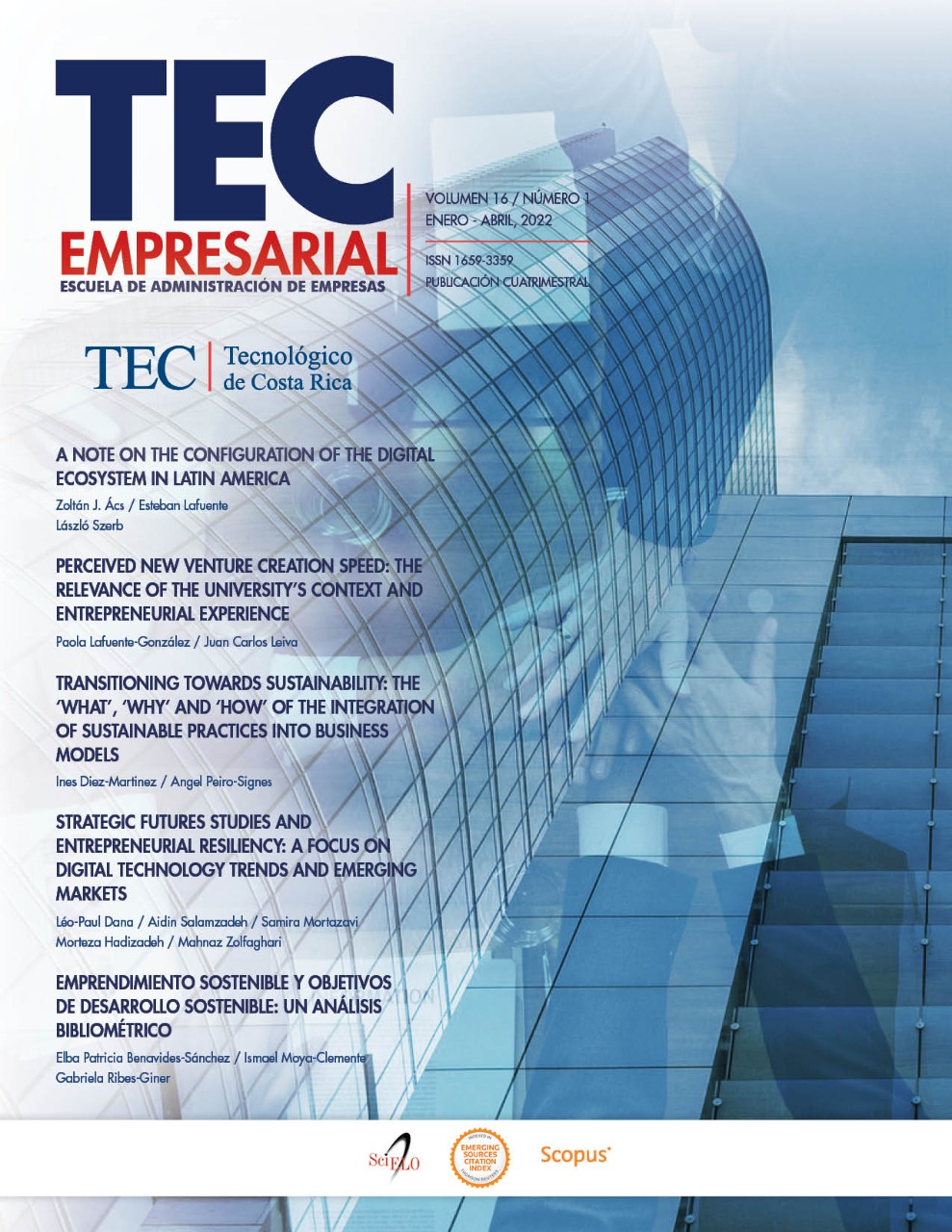Perceived new venture creation speed: The relevance of the university’s context and entrepreneurial experience
Main Article Content
Abstract
This study scrutinizes how the perceived new venture creation speed is explained by variables connected to the individuals’ human capital, the business planning process, and the university’s context. The empirical analysis employs an ordered logit model on a sample drawn from the GUESSS databases for 2018 that includes information for 636 Costa Rican university students who are involved in nascent entrepreneurial activities. The results highlight two different patterns of new venture creation speed among nascent entrepreneurs: older students who are carrying out tasks related to their potential venture—i.e., writing a business plan and searching for external funding—perceive that they need less time to create their new business, whereas university’s program learning slows down the perceived start-up speed among individuals with past entrepreneurial experience. Additionally, the findings highlight the importance of business planning tasks for developing practical and strategic capabilities, as well as of the business-specific cumulative knowledge generated by past entrepreneurial experience. Implications on how universities can promote students’ entrepreneurial activity by improving their entrepreneurial environment and program learning are discussed.
Article Details
The digital version of the journal is registered under the BY-NC-ND 4.0 Creative Commons license. Therefore, this work may be copy and redistribute the material in any medium or format, as long as you give appropriate credit, provide a link to the license, and indicate if changes were made. You may do so in any reasonable manner, but not in any way that suggests the licensor endorses you or your use.
The authors keep the copyright and give the journal the right of the first publication and the possibility of editing, reproducing, distributing, exhibiting and communicating in the country and abroad through printed and electronic means. On the other hand, the author declares to assume the commitment on any litigation or claim related to the rights of intellectual property, exonerating of responsibility to the Business School of the Costa Rica Institute of Technology.


